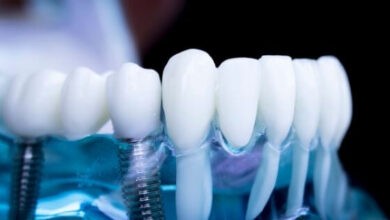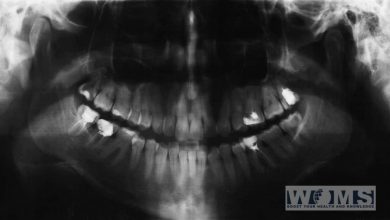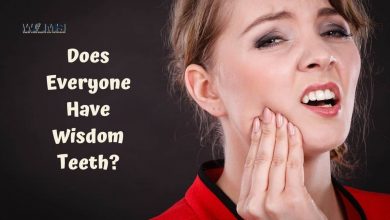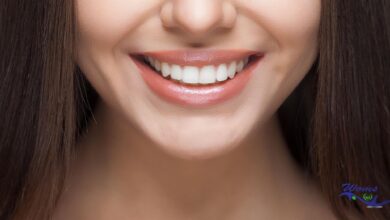Overbite or Buck Teeth
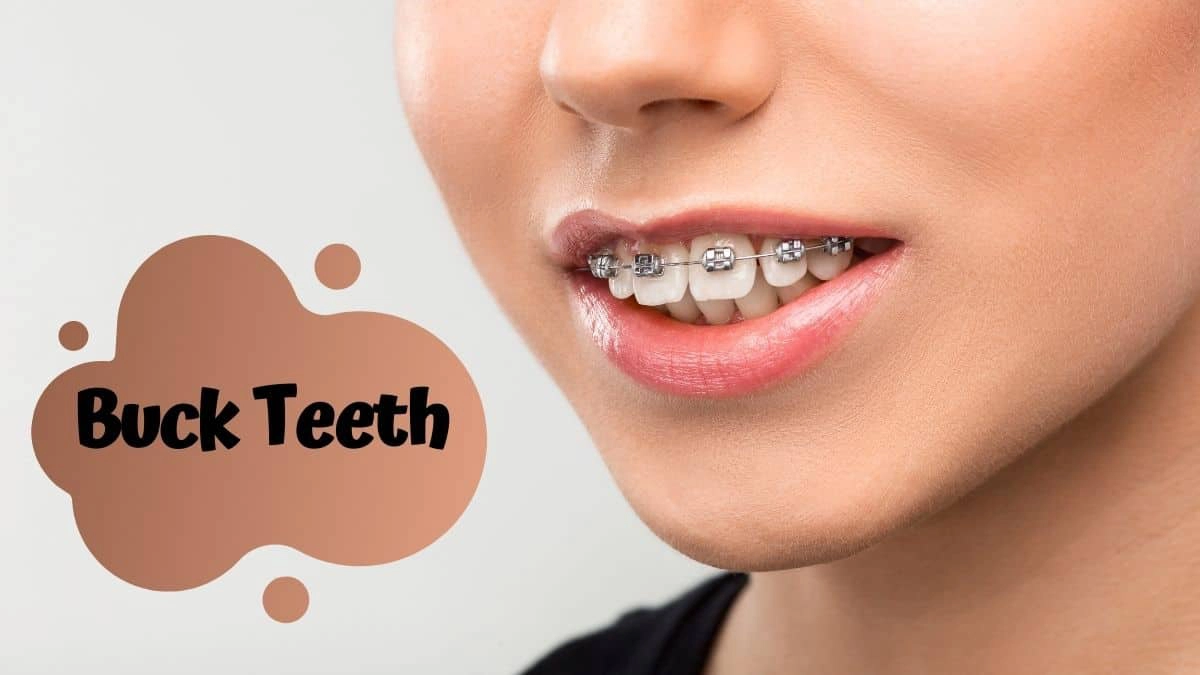
Buck teeth are a dental anomaly in which teeth are unable to occlude in the proper orientation. This tooth anomaly is a type of malocclusion known as an overbite or deep bite. As the name indicates, there is an extended occlusion of upper and lower teeth. This condition happens when upper teeth overlap the lower teeth to a greater extent than normal.
Most people don’t bother about it and don’t go for treatment. But as time passes, it causes several problems. So let’s have a review of buck teeth in detail.
Etiology of overbite or buck teeth
Normally, the tongue rests on the back or lingual side of the lower teeth. This problem arises due to several factors. Most commonly, it is prevalent in childhood but can also prevail in adulthood due to multiple causes. Let us dig into the causes of overbite or buck teeth.
Parafunctional habits
These persistent habits play a drastic role in disturbing the normal occlusion and dentition. The most common habit in children is thumb sucking. As the child sucks the thumb, it puts pressure on the back of the front teeth. In addition, this pressure forces the teeth to extend forwardly.
As the teeth move forward, it causes an increased overlap of upper and lower teeth, inducing overbite. Thumb sucking is the leading cause of overbite. Moreover, when this habit continues more than 3 or 4 years of age, the permanent teeth erupt at an incorrect angle.
Tongue thrusting
Tongue thrusting is related to abnormal positioning of teeth with more pressure on the back of teeth. In addition, faulty swallowing habits also produce the overbite condition of teeth. Stress is also a cause for tongue thrusting in sleep.
Skeletal abnormalities
There may be an abnormal growth of the jaws producing the same effect of overbite. In addition, there are some genetic causes that can induce the same anomaly. Moreover, if blood relatives have buck teeth, there is a strong association that children may also have buck teeth.
Pacifier use
Dentists strongly prohibit the use of pacifiers for infants. Besides infectious germs, overuse of pacifiers has the same effect on teeth as thumb sucking. In addition, the American Dental Association reports a higher malocclusion rate in children using pacifiers.
Unerupted teeth or crowding
Both conditions affect the orientation of the teeth in the upper and lower jaw. Missing teeth can create space in the dentition and induce the look of buck teeth. In addition, crowding can force the teeth to move in the forward direction which is a cause for buck teeth.
Buck’s teeth are a severe dental anomaly. It requires early treatment to fix the problem. Besides this, it also causes various other significant health risks. Therefore, buck teeth need to be treated as soon as possible. Some of the significant health concerns are as follows:
Speech problems
Buck’s teeth cause speech-related problems. As the upper and lower teeth overlap, it causes difficulty to speak some alphabets. A person with greater overbite or buck teeth may have difficulty in speaking F, M, B, V, P, and S-like alphabets.
Chewing difficulties
In buck teeth, upper and lower teeth are not in proper alignment. This abnormal orientation of teeth causes chewing problems. People aren’t able to bite food properly which may cause digestion problems. In addition, there may be pain during chewing or mastication.
Periodontal diseases
Buck teeth may also cause several periodontal disorders. It is difficult to maintain oral hygiene with buck teeth. Gums may get swollen or get infected. So periodontal diseases are more common in people with buck teeth or overbite.
There are several other health risks besides the above-mentioned main problems. Let us have a look at other disorders caused by buck teeth.
- Tooth enamel wear because of increased overlap
- Bruxism or teeth grinding habit is common in people with buck teeth.
- Buck teeth can also affect the face appearance
- Jaw discomfort or pain
- Severe headache
- Airway or breathing problems
- More gum diseases
- Continuous irritation
Treatment for buck teeth
There are different treatment strategies for buck teeth. You can’t correct your smile line without visiting any orthodontist. In addition, buck teeth correction plans vary with age and severity. Let us discuss different treatment strategies for buck teeth.
There are several treatment options to correct the overbite of patients.
- Functional appliances
- Invisalign aligners
- Palate expansion
- Orthognathic or jaw surgery
Let us discuss these treatment plans in detail for better understanding.
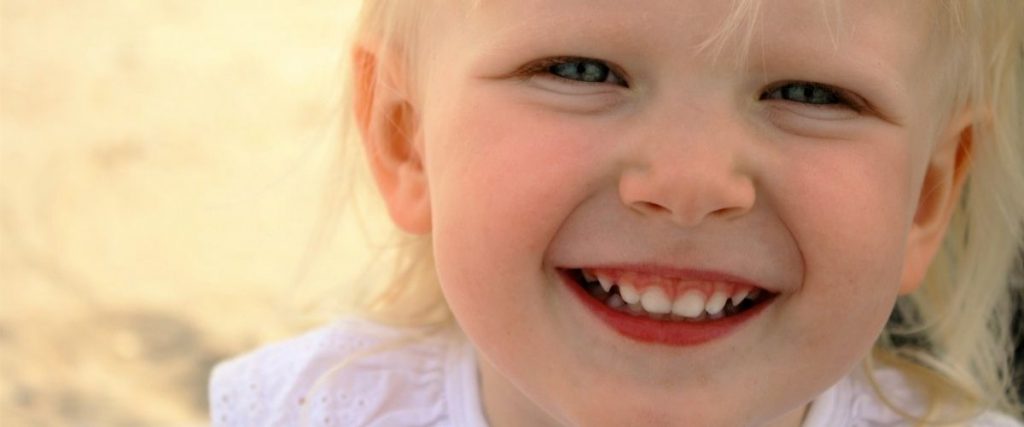
Functional appliances
Functional appliances are in the form of special braces. These special braces put pressure on upper teeth to move backward. In addition, these braces put pressure on lower teeth to move forward. During this treatment, orthodontic wires need adjustments multiple times to keep applying pressure.
These braces are more effective in childhood and teenagers because of the peak growth period. These wires help to modify the growth of the jaws.
Invisalign aligners
These aligners help to correct minor overbite problems in children and adults. These aligners are custom-designed to provide an accurate teeth position.
Invisalign aligners are more beneficial for adults as of their clear appearance. But, this treatment plan costs more than normal braces and brackets.
Palate expansion
The palate may need expansion to correct teeth alignment. If your upper jaw is too small to adjust teeth perfectly, your orthodontist will suggest palate expansion. This treatment plan includes palate expander appliances. These appliances help to expand the palate.
Once the palate gets expanded, teeth can easily move to adjust in a normal position. This treatment is most effective during growth periods.
Orthognathic or jaw surgery
Overbite surgery is also indicated in adults when jaws cannot grow more to adjust teeth. This treatment plan is common for late adults to correct buck teeth or overbite problems.
Conclusion
Buck’s teeth are a very serious problem to consider for appropriate treatment. If you are having protruding teeth more than normal, you must visit the orthodontist. An overbite may cause several health problems and may damage your oral health. As soon as you realize it, it will be easy to correct your buck teeth.
Your orthodontist will devise an appropriate treatment plan to correct your teeth. There are different devices to correct your buck teeth. You just need to be motivated and compliant enough with the treatment plans.
Frequently asked questions (FAQs)
What is the ideal treatment plan for children and teenagers?
Age is also a great factor to plan treatment for overbite correction. There are some appliances that are more effective in the childhood and teenage years.
1. Growth modification appliances
2. Wires and braces
3. Removal of primary or baby teeth
4. Space retainers to create space
What is the best treatment plan for adults?
As in adults, there is no such growth phase during treatment. So, adults require a definitive treatment plan to correct buck teeth.
1. Tooth extraction
2. Brackets or braces
3. Orthognathic or jaw surgery
